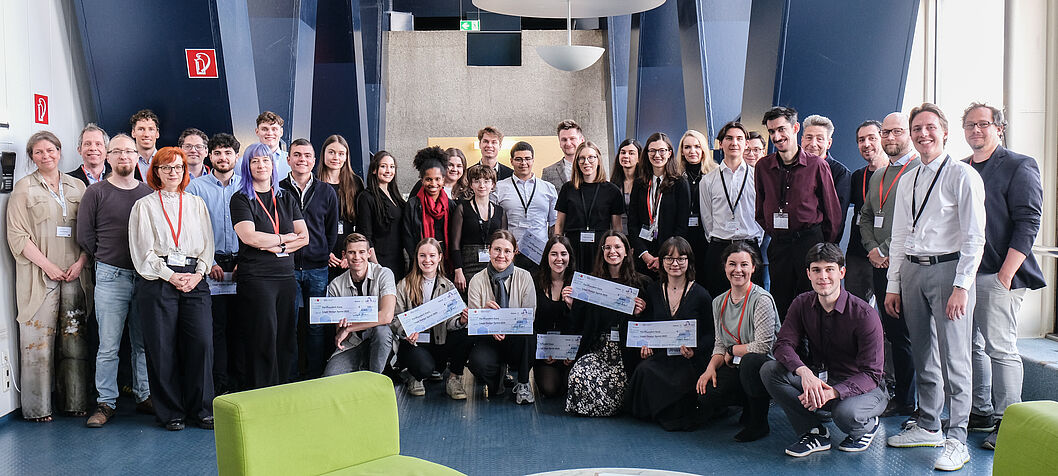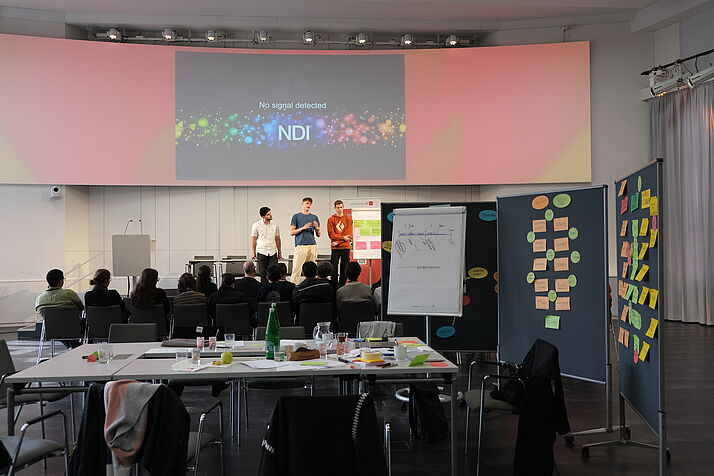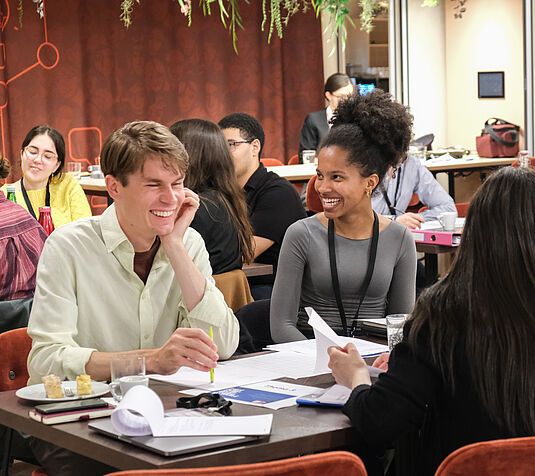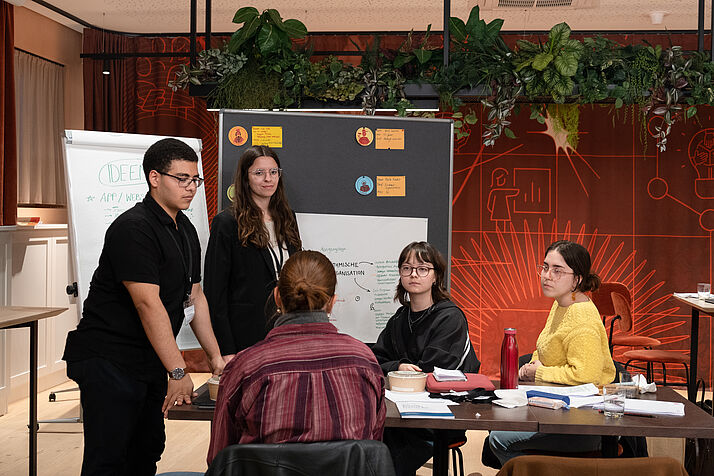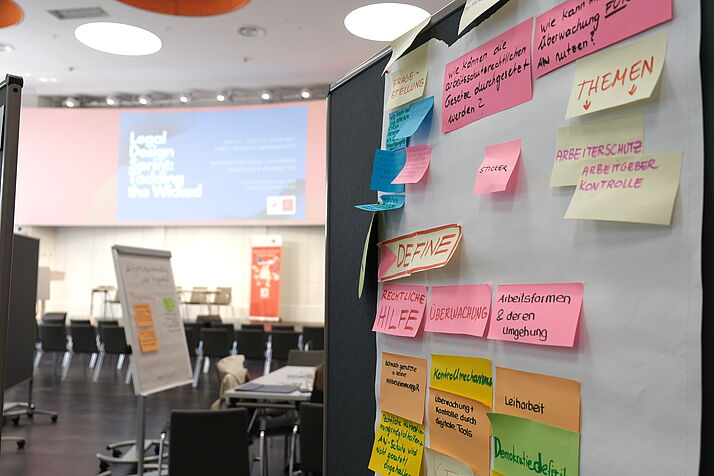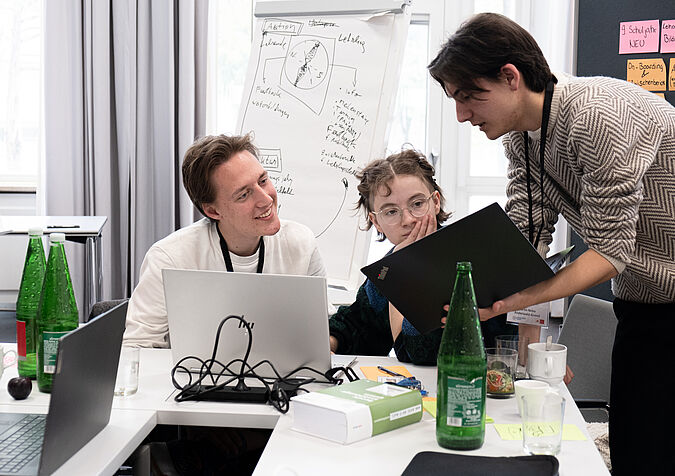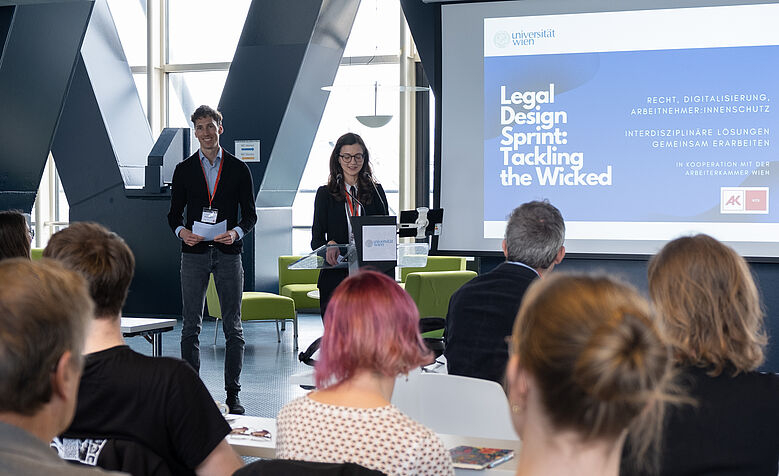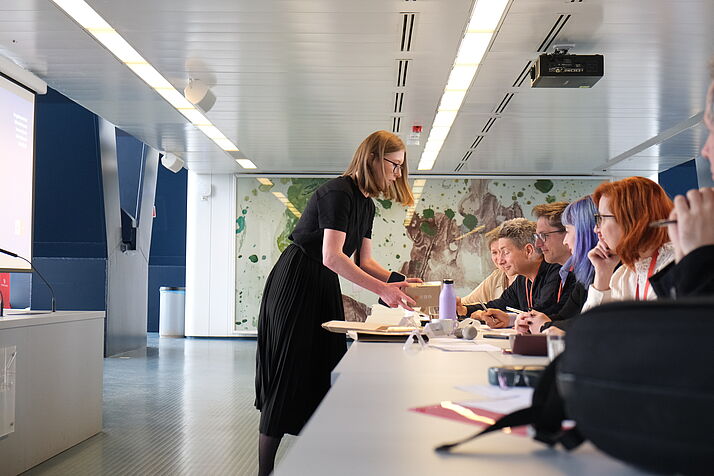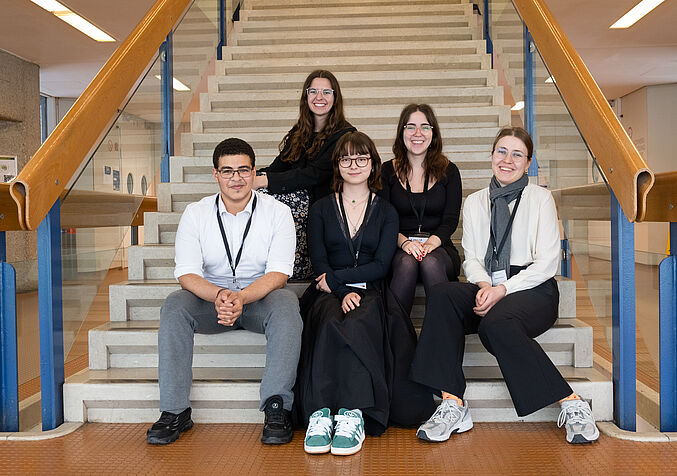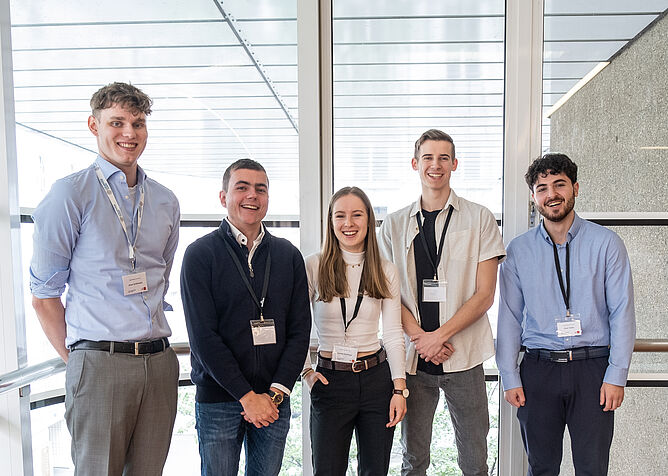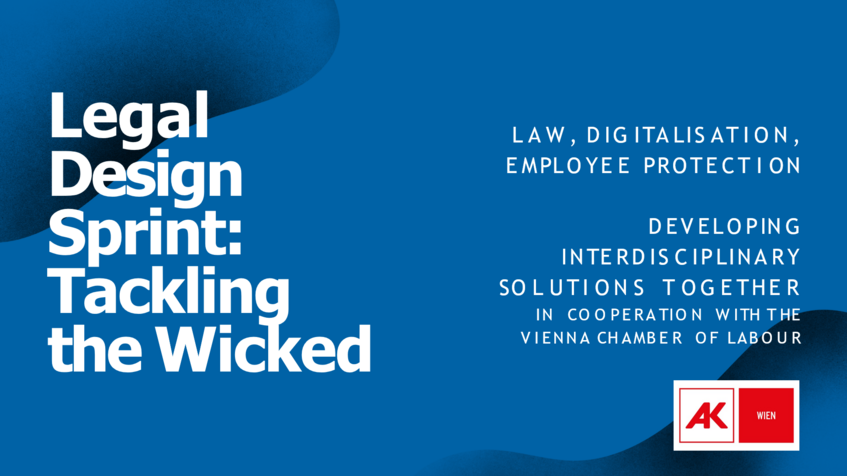
Legal Design Sprint 2025
The Department of Innovation and Digitalisation in Law is organising a Legal Design Sprint from 15 to 17 May 2025 in cooperation with the Vienna Chamber of Labour. The concept of the design sprint originates from organisational development and is intended to develop new approaches and solutions for specific issues. The Legal Design Sprint is an innovative, interdisciplinary teaching concept aimed at novice legal experts. They learn how to collaborate with other disciplines to find solutions that are both legally appropriate and technically feasible.
A design sprint is based on the fundamental assumption that the (technical) design of an object influences our interaction with it and may even determine it. It is therefore essential that future legal experts are able to recognise and address the interdisciplinary challenges posed by increasing digitalisation.
The Legal Design Sprint 2025 will focus on employee protection and employee rights in the digital age.
The focus in 2025 will be on the following topics:
- Algorithmic work organisation
- Logistics & performance monitoring
- Feedback culture
- Labour market entry & migration
- Apprenticeship training & final examination
The participating students will work on selected problems together with representatives of civil society (e.g. trade unions, works councils, Chamber of Labour, associations and initiatives). In addition to specialist support from experts in law, technology and innovation, The Invisible Lab will accompany the Design Sprint.
The Invisible Lab is a post-disciplinary design studio and lab based in Graz, Austria. In addition to design research, the studio mainly focusses on the invisible part of design, which it develops in projects in the fields of health, prevention, behaviour change, digitalisation, law and corporate.
The Design Sprint offers novice legal experts the opportunity to gain experience in interdisciplinary collaboration and to apply their legal knowledge in practice. Civil society representatives, on the other hand, are given the opportunity to develop solutions for the problems relevant to them together with legal experts.
Photo Gallery 2025
Award for the best projects
The projects developed as part of the sprint are evaluated and awarded prizes by a top-class jury consisting of members of the Faculty, the Chamber of Labour and other experts from the fields of design and digitalisation.
The two winning projects will receive prize money in the amount of EUR 500 per person. The University of Vienna supports the realisation of promising ideas through its own mentoring programme.
Structure

The sprint begins with the "unpack & sketch" module, in which experts from the fields of law, technology and design give introductory lectures. This ensures that all participants have a common knowledge base. Starting from these presentations, the participants work in small interdisciplinary groups to develop their research questions, which they will address in the coming days ("decide"). Finally, there is a feedback round in plenary. On the second day, the groups work on their respective questions ("dig in") and prepare interactive presentations, illustrative material or performances with which they present their results ("create"). The experts participating on site will be available throughout the day to provide specialist and interdisciplinary guidance. On the third day, the groups first refine their presentations ("refine"), which are then assessed by a jury ("finish"). The jury consists of experts from all disciplines represented. Its evaluation is based on the criteria of innovation potential and ingenuity, legal problem-solving expertise, technical feasibility and design.
Example
Iris Eisenberger (LSE) and her team have already held successful design sprints in cooperation with The Invisible Lab in the past:
Design Sprint 2024 (in German)
Design Sprint 2023 (in German)
Design Sprint 2021 (in German)
Blog post: Recht neu designt: Ein Blick über den Tellerrand (Designing law anew: Thinking outside the box, univie Blog)
Publication: Design Sprints als interdisziplinäres Lehrkonzept (Design sprints as interdisciplinary teaching concept, Manz)

